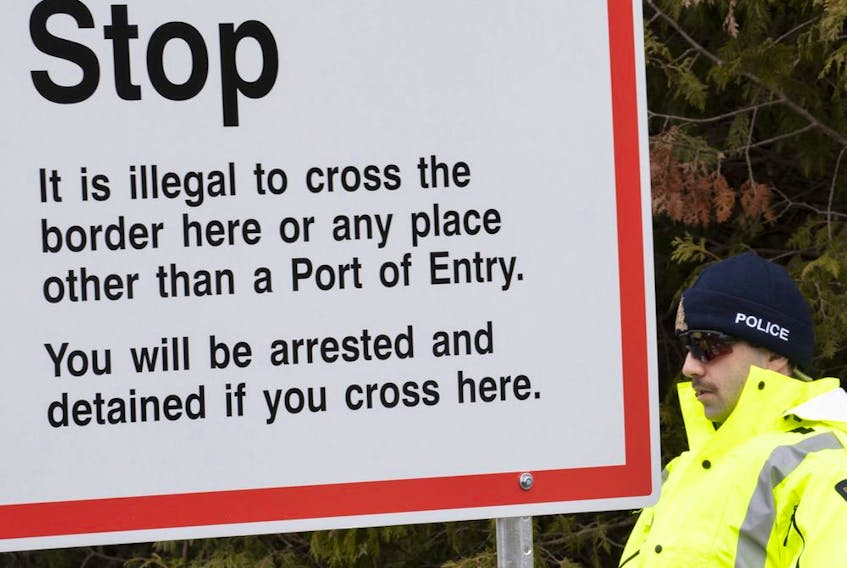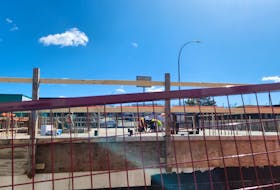OTTAWA, Ont. — Canada’s asylum system is unable to cope with surges in the number of claimants, resulting in a backlog of more than 71,000 refugee claims, Canada’s auditor general concluded in a new report released Tuesday.
Asylum seekers are currently waiting an average of two years for a decision on their refugee claims, interim auditor general Sylvain Ricard found in the report, and that could increase to five years by 2024 if the number of new claimants remains steady at about 50,000 per year.
The report points to inadequate funding and poor sharing of information between the three agencies that oversee the asylum system as reasons for the backlog.
“People seeking asylum in Canada wait about two years for decisions from a rigid system that can’t adjust to volume spikes,” the report claims.
The audit comes in response to a surge in the number of asylum claimants arriving in Canada in the last two years, driven in part by an influx of would-be refugees crossing the border illegally from the United States since the 2016 election of U.S. President Donald Trump. In 2017 and 2018, about 40,000 asylum seekers arrived in Canada this way, most crossing onto a rural road in Quebec. They are crossing the border illegally because of an agreement signed by Canada and the U.S. that prevents them from making refugee claims at official border crossings, but does not apply to the area between those ports of entry.
In 2017, Canada received 50,400 asylum claimants, more than double the number from the previous year. That increased to 55,000 in 2018.
The audit found that Canada’s refugee system is not equipped to respond quickly to an increased number of claimants. This isn’t a new problem for the government — back in 2010, Ottawa was facing a backlog of 59,000 claims, with an average processing time of 19 months. In 2012, the Conservative government made a number of reforms to the system to try and address the problem, including a requirement that hearings for most claimants be scheduled within 60 days.
However, the system was funded for only 22,500 asylum seekers, and the recent influx of claimants has exceeded the government’s capacity. Of those who made asylum claims in 2017, only 18 per cent received a hearing within 60 days. Many hearings were postponed for months, often because there was no board member from the Immigration and Refugee Board (IRB) available to hear the claim. In February 2018, the 60-day requirement was set aside, and the expected wait time had reached two years by December. At that point, there was a backlog of more than 71,000 refugee claims — more than in 2010, prior to the reforms.
Aside from a lack of funding, the audit points to inefficient information sharing between the IRB, the Canada Border Services Agency (CBSA) and Immigration, Refugees and Citizenship Canada (IRCC). It found that the three agencies use different information systems to track data about asylum claims, which don’t work well together.
The report also notes that all three agencies still rely on paper files to process claims. “Even when claim information was available electronically, it was printed out and shared between organizations by fax or courier,” the auditors found. “The Immigration and Refugee Board of Canada continued to rely almost exclusively on paper files in its work.” The audit urges the agencies to move toward digital processing of claims, pointing out that the Parole Board of Canada “exchanges sensitive case information electronically in a secure manner and has realized efficiency gains from doing so.”
The audit also found that the IRB rarely fast-tracked claims, even though it has the ability to assess claims from certain countries through a file review rather than an in-person hearing. Auditors found that the board only expedited a quarter of eligible claims, even though 87 per cent of the remaining three quarters eventually received positive decisions.
The audit covered the period from January 2015 to June 2018. Since then, the government has put in place a number of measures to try and lessen the strain on the asylum system. Budget 2019 announced $1.18 billion over five years, intended to fund the processing of up to 50,000 claims in 2020-21.
Ottawa has also launched a pilot project in Montreal to improve information sharing between the IRB, the CBSA and IRCC, and plans to expand it. In February 2019, the IRB set up a task force to deal with those claims that can be settled without a hearing.
However, the government is also taking measures to reduce the number of asylum seekers entering Canada. This year’s budget bill includes a measure that allows Canada to turn away asylum seekers who have already filed claims in other countries, marking an about-face in the Liberal government’s previously welcoming attitude toward refugee claimants.
• Email: [email protected] | Twitter: MauraForrest
Copyright Postmedia Network Inc., 2019









